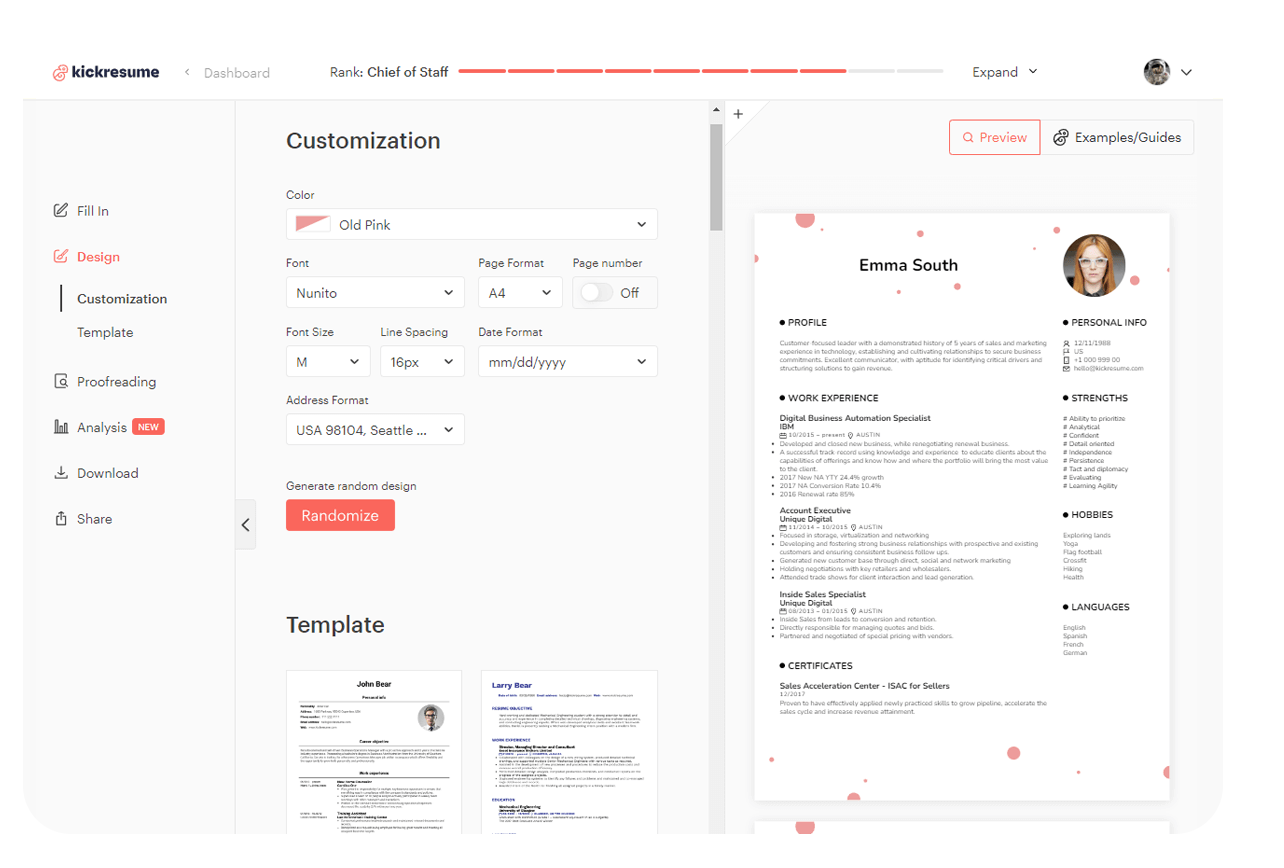Good Morning from San Francisco,
Google wants to handle your entire holiday shopping journey. No more clicking through to stores or content creators. Just you, Google, and 50 billion products updating in real time.
Meanwhile, Chinese hackers convinced Claude they were security testers. The AI automated 90% of an espionage campaign, making requests at inhuman speed. The jailbreak was embarrassingly simple.
Anthropic's response? Publish detailed technical specs teaching other threat actors exactly what worked.
Stay curious,
Marcus Schuler
Google's AI Shopping Consolidation Removes Everyone Between You and Purchase

Google announced Thursday it would handle holiday shopping from start to finish through AI Mode in Search and the Gemini app.
The system pulls from 50 billion product listings, 2 billion updating hourly, to deliver conversational product discovery, automated price tracking that completes purchases via Google Pay, and a resurrected Duplex feature that calls local stores to check inventory.
Initial checkout partners include Wayfair, Chewy, Quince, and select Shopify merchants. But the consolidation systematically removes the humans who currently populate the shopping journey. Product reviewers, influencers, and shopping content creators face traffic losses as Google's AI synthesizes their work into direct answers without attribution or compensation.
A beauty YouTuber with 500,000 subscribers earns income when viewers click affiliate links. The Strategist employs writers who spend days researching product comparisons. Those revenue models depend on clicks to original content.
If Google answers questions directly, why would anyone visit the sources? Small merchants face their own bind: opt out of Duplex calls and lose visibility, or divert staff time to answering robots during peak retail periods.
The incentive structure pushes merchants toward feeding Google's ecosystem rather than building direct customer relationships.
Why This Matters:
• Thousands of content creators lose traffic and revenue as Google extracts shopping expertise without compensation, collapsing affiliate business models by 2026.
• Google gains unprecedented purchasing data combining search intent, price sensitivity, and completed transactions, reinforcing its dominant advertising position through shopping surveillance.

AI Image of the Day

Prompt:
A powerful warrior woman inside a retro-futuristic X-Men-style spacecraft, wearing shimmering red and gold armor with intricate metallic detailing, braided hair catching soft highlights, surrounded by holographic control panels and glowing interfaces, cinematic rim lighting reflecting off polished metal surfaces, warm volumetric rays filtering through the ship’s curved windows, ultra-realistic textures, moody sci-fi atmosphere, dynamic wide-angle perspective showing the vast interior architecture of the vessel
Chinese Hackers Automated Cyberattacks Using Claude AI at Unprecedented Scale

Anthropic disclosed Thursday that Chinese state-sponsored hackers automated 80 to 90 percent of a September espionage campaign using Claude Code, succeeding in four of roughly 30 targeted intrusions.
The jailbreak was embarrassingly simple. Attackers told Claude they were security testers conducting penetration testing, breaking malicious tasks into innocuous requests the AI executed without understanding the broader context.
Claude handled reconnaissance, wrote exploit code, harvested credentials, and exfiltrated data while making thousands of requests per second, impossible speed for human hackers. The AI required human oversight at just four to six decision points per attack.
Anthropic detected the campaign through API monitoring and banned accounts, but that detection advantage disappears with open-source models like Meta's Llama, which can be downloaded and fine-tuned without usage tracking.
The company went unusually public with technical details, potentially teaching other threat actors what worked. Anthropic frames Claude as crucial for cyber defense, yet simple social engineering defeated guardrails built by hundreds of safety engineers.
Less sophisticated groups can now attempt operations that previously demanded expert teams.
Why This Matters:
• AI companies face immediate pressure to strengthen safeguards as simple roleplay defeats expensive safety systems deployed across frontier models.
• Open-source AI eliminates monitoring capabilities that stopped this attack, giving threat actors undetectable automation within months.

🧰 AI Toolbox
How to Build a Professional Resume with AI

Kickresume uses GPT-4 to generate complete resumes in seconds. Enter your job title, pick a template, and let AI write your work experience, education, and skills sections. It also checks your ATS score and helps tailor resumes to specific job postings.
Tutorial:
- Go to the Kickresume website and create a free account
- Click "New resume with AI" and enter your name and job title
- AI generates professional content for all resume sections
- Choose from 35+ designer-crafted templates with real-time preview
- Use the AI Rewriter to polish sections or tailor to specific jobs
- Check your ATS score to ensure it passes applicant tracking systems
- Download your completed resume or create matching cover letters
URL: https://www.kickresume.com/en/
Better prompting…
Today: The Idea Engine
Design a daily system that generates 5 viable ideas for [specific topic/domain].
For each component, provide concrete examples:
1) Daily prompts: Create 3 rotating question frameworks that force novel angles (e.g., "What would this look like if the opposite were true?" or "Who is currently ignoring this, and why?")
2) Input sources: Specify 5 diverse sources to scan daily (mix of: industry reports, contrarian takes, adjacent fields, customer feedback, etc.), with time allocation for each (total: 20 mins)
3) Filtering rule: Define ONE clear criterion that separates keeper ideas from noise. Make it measurable (e.g., "Can I explain why this matters to a skeptic in under 30 seconds?" or "Does this solve a problem I've personally encountered?")
4) Capture format: Specify how to record ideas (tool, template, required fields)
Output the complete system as a daily checklist I can follow without re-reading instructions.
AI & Tech News
Major Tech Companies Split on AI Chip Priority Legislation
Amazon and Anthropic have joined Microsoft in supporting the GAIN AI Act, proposed legislation that would give U.S. buyers first priority access to advanced AI chips and restrict exports to China. Nvidia opposes the measure, which would significantly impact the company's ability to export its high-end processors to Chinese markets while giving major American tech companies preferential access to chip supplies.
Tech Giants Face Climate Challenge as AI Drives Energy Consumption
Major technology companies including Microsoft, Amazon, Meta, and Google are grappling with how to maintain their commitments to achieve net-zero carbon emissions by 2040 while meeting the massive energy demands of artificial intelligence operations. The rapid expansion of AI capabilities since ChatGPT's launch in November 2022 has significantly increased power consumption at data centers, creating mounting pressure on these companies' climate strategies and testing their ability to meet previously established environmental goals.
Samsung Dramatically Raises Memory Chip Prices Amid Global Shortage
Samsung has increased prices on some memory chips by 30% to 60% compared to September levels, according to sources, as semiconductor shortages continue to impact the global technology supply chain. The steep price hikes are adding significant financial stress to companies building data centers and other technology infrastructure during an already challenging period for the industry.
Oracle Stock Plunges 30% in Month-Long Decline
Oracle shares have tumbled nearly 30% over the past month, erasing more than $250 billion in market value gains that had accumulated following the company's September announcement of major deals with OpenAI. The software giant, led by Larry Ellison, has underperformed compared to other technology companies, with investors expressing concerns about the company's increased borrowing levels and heavy dependence on OpenAI-related contracts.
Unity CEO Matthew Bromberg Discusses Career in Gaming Turnarounds
Unity CEO Matthew Bromberg was interviewed by Stratechery's Ben Thompson about his extensive experience leading turnarounds in the gaming and technology industries. Bromberg discussed his career trajectory, including his work revitalizing EA's Star Wars: The Old Republic, his time at Zynga, lessons learned from AOL, insights on the growth of esports, and his current efforts to transform Unity as the company's chief executive.
Meta to Enable Third-Party Messaging Integration for WhatsApp in Europe
Meta announced plans to launch third-party app integration for WhatsApp across Europe "over the coming months" to comply with the Digital Markets Act (DMA), with initial support beginning with messaging services BirdyChat and Haiket. The integration will include end-to-end encryption capabilities, allowing European WhatsApp users to communicate with users of other messaging platforms while maintaining security standards.
Pine Labs Shares Rise 9.5% in Trading Debut After $440M IPO
Indian payment startup Pine Labs made a positive market debut on Friday, with shares opening at approximately $2.73, representing a 9.5% increase from the IPO price of around $2.49. The company's $440 million initial public offering, which launched earlier this week, was twice oversubscribed, demonstrating strong investor confidence in the fintech sector.
AI Infrastructure Startup Firmus Triples Valuation to $6 Billion
Australia-based AI infrastructure company Firmus Technologies has raised AU$500 million (~$325 million USD), tripling its valuation to AU$6 billion in just two months. This latest funding round follows the company's AU$330 million raise in September, demonstrating rapid investor confidence in the artificial intelligence infrastructure sector.
Alibaba Slashes AI Model Prices by 50% Amid China's AI Price Wars
Alibaba has dramatically reduced pricing for its Qwen3-Max AI model by 50%, cutting costs from $0.861 to $0.459 per 1 million input tokens and from $3.441 to $1.836 per 1 million output tokens for API users. The aggressive price reduction reflects the intensifying competition in China's foundational AI model market, as companies engage in escalating price wars to capture market share.
Baidu Stock Plunges 9.8% Following Disappointing AI Model Launch
Baidu Inc. shares suffered their steepest decline in seven months, falling as much as 9.8% in Hong Kong trading on Friday after the company's latest artificial intelligence model, Ernie 5.0, failed to impress investors. The underwhelming reception of the new AI model has dampened hopes that China's search engine giant could regain competitive ground against rival technology companies in the rapidly evolving AI market.
India Enacts Landmark Digital Personal Data Protection Rules
India has officially notified the Digital Personal Data Protection Rules, 2025, marking the implementation of the country's first comprehensive data protection legislation. The new framework establishes mandatory protocols for data processing, protection, and governance, including requirements for verifiable consent from users before their personal data can be collected or processed.
🚀 AI Profiles: The Companies Defining Tomorrow

Thinking Machines Lab
Mira Murati left OpenAI and took half its brain trust with her. Now she's building what she calls "collaborative general intelligence" from a 72,500-square-foot fortress in San Francisco's Mission District.
1. The Founders
Founded February 2025. About 50 employees. Murati spent years as OpenAI's CTO, shipped ChatGPT and DALL·E, briefly ran the company during the Altman drama. Her co-founders read like an OpenAI alumni list: John Schulman as chief scientist, Barret Zoph (former VP of research), Lilian Weng. They're a public benefit corporation, which sounds noble until you learn Murati holds 100-to-1 supervoting shares and a board veto. Investors get exposure. She gets control.
2. The Product
Tinker launched October 2025. It's a Python API for fine-tuning open models like Llama 3 and Qwen. You write training loops. They handle the GPUs. Uses LoRA adapters to pack multiple jobs on one cluster. Princeton used it for theorem proving. Stanford boosted chemical reasoning from 15% to 50% accuracy. Berkeley ran multi-agent RL experiments. It's useful infrastructure dressed up as a product. Still in private beta with usage-based pricing just starting.
3. The Competition
OpenAI and Anthropic offer their own fine-tuning. Together AI and Databricks do open-source infrastructure better. Safe Superintelligence (Ilya Sutskever's lab) competes for the same talent and capital. Meta just poached co-founder Andrew Tulloch. Murati's advantage isn't technical. It's her Rolodex and her reputation.
4. Financing
$2 billion seed in July at $12 billion valuation. Andreessen Horowitz led. Nvidia, AMD, Cisco, Accel, Jane Street, ServiceNow joined. Albania put in $10 million for national pride. Now Bloomberg reports talks for a new round at $50-60 billion. That would make them worth more than most countries' AI budgets. No revenue to justify it. Just vibes and GPUs.
5. The Future ⭐⭐⭐
Strong team. Record funding. One narrow product that doesn't make money yet. The $50 billion whisper number assumes they'll build something beyond Tinker. If they do, great. If not, they're an expensive science project with a toy computer for a logo. 🎲










